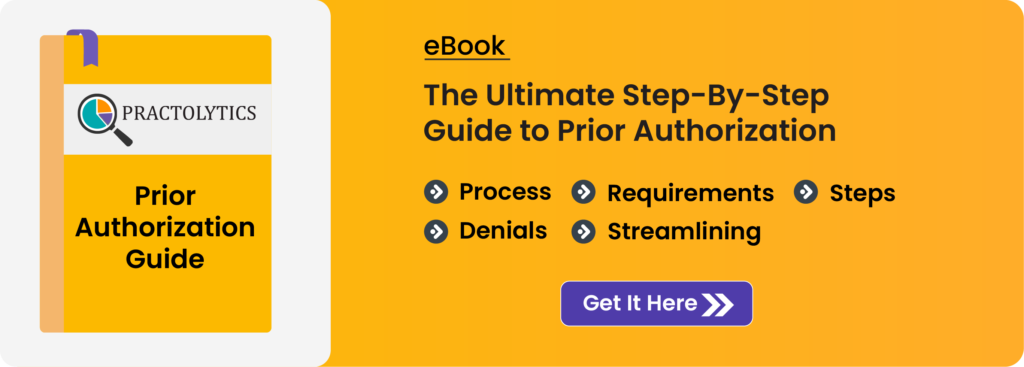Maximizing Healthcare Revenue: Engaging Physicians in the Claims Cycle
Did you know that 32% of outpatient commercial claims remain unpaid after 90 days? Effective claims management is essential for the financial health of healthcare practices, yet many face challenges like denials and partial payments. One key to overcoming these hurdles is actively engaging physicians in the claims process. At Practolytics, we understand these challenges and offer specialized Revenue Cycle Management (RCM) and medical coding services designed to help practices navigate the complexities of the claims process. By actively engaging physicians in this process, we can significantly enhance revenue and ensure better financial outcomes for healthcare providers.
Table of Contents
The Reality of Claim Denials and Underpayments
In today’s dynamic healthcare environment, staying compliant with federal policies and insurance requirements is a constant challenge. Research indicates that traditional Medicare claims experience an 11% unpaid rate after 90 days, while outpatient commercial claims face a staggering 32%. According to a survey by MGMA Stat, the leading reasons for claim rejection include:
- 42% due to prior authorization issues
- 29% from demographic inaccuracies
- 7% from untimely filing
- 22% from coding disparities and payer-specific requirements
A rejected claim results in zero coverage, while an underpaid claim delivers less than anticipated based on payer agreements. Many of these issues stem from medical billing and coding mistakes. Educating physicians on proper coding practices can significantly reduce these costly errors.
The Power of Education
While physicians generally understand medical coding, a deeper grasp can empower them to engage effectively in billing workflows. Providing foundational knowledge enables better conversations with administrative teams and contributes to efficient claims processing.
Key Focus Areas for Physician Education
To optimize claims management, focus on educating physicians in these areas:
- Evaluation and Management Codes: Ensure proficiency with guidelines for selecting the appropriate service level.
- Common Procedures and Drug Codes: Teach the significance of effective documentation for accurate revenue capture, including bundled processes and global periods.
- Modifier Usage: Familiarize physicians with common modifiers and their impact on billing and coverage.
- Prior Authorization Needs: Help them understand which services require pre-authorization to reduce claim rejections.
- Payer Policies: Regularly review payer-specific policies on modifier usage and frequently used codes.
Designing a Robust Education Program
An extensive education initiative focused on these key areas can minimize administrative hurdles and enhance fiscal health. For instance, educating practitioners on the effective use of bundling and unbundling codes can alleviate confusion and ensure compliance. Additionally, integrating feedback from auditors, billers, and coders regarding rejected claims into ongoing training fosters a continuous learning environment.
Optimizing Electronic Health Records
Effectively using Electronic Health Record (EHR) systems can streamline coding and billing workflows, reducing burdens on both practitioners and administrative staff. Practice administrators should collaborate with EHR vendors to implement user-friendly solutions that align with physician workflows.
EHR Solutions to Enhance Billing and Coding
- Procedure Mapping: Automatically populates CPT codes on appropriate orders, minimizing manual entry errors.
- Order Sets: Ensures consistency and saves time by automatically placing orders when a diagnosis code is entered.
- Physician Favorites: Provides quick access to frequently used diagnoses, procedures, and drug codes.
- Keywords and Smart Phrases: Speeds up documentation with predefined shortcuts while maintaining accuracy.
- Query Processes: Enhances communication between administrative staff and physicians to validate claims, codes, and bills, reducing denial risks.
Important Considerations for EHR Use
While EHR shortcuts and automation can boost efficiency, they must be used judiciously. AdvancedMD EHR is an excellent choice for EHR solutions, offering robust features that enhance workflow while maintaining compliance. However, for high-risk patients or complex cases, thorough documentation remains crucial. As a platinum partner of AdvancedMD, Practolytics can assist practices in effectively leveraging these EHR capabilities while ensuring that shortcuts are used appropriately. We help practices regularly assess and update EHR settings to align with current billing and coding standards, ensuring compliance with regulatory requirements and optimizing overall performance.
Wrapping Up
By actively engaging physicians in claims workflows through effective education and streamlined EHR usage, medical practices can significantly reduce claim denials and underpayments. This proactive approach maximizes financial stability and fosters collaboration between administrative staff and practitioners, all working toward a common goal—enhancing revenue and ensuring compliance.
Stay informed in the ever-evolving landscape of medical coding and billing. Invest in ongoing education for physicians and leverage EHR systems with the help of RCM partners like Practolytics to unlock your practice’s full potential. Together, we can navigate the complexities of the claims cycle and safeguard your revenue workflows for a healthy financial future.
ALSO READ – Updated Urgent Care Billing and Coding Guidelines to Follow in 2023
Talk to Medical Billing Expert Today — Get a Free Demo Now!






